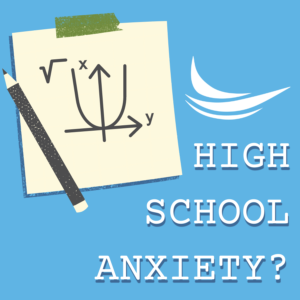 Anxiety present at the beginning of a new school year as part of back-to-school-anxiety is common. While some students may struggle with their emotional or behavioral responses in response to events such high-school-stress, once they have adjusted and learned to effectively cope with the source of stress, functioning is often improved.
Anxiety present at the beginning of a new school year as part of back-to-school-anxiety is common. While some students may struggle with their emotional or behavioral responses in response to events such high-school-stress, once they have adjusted and learned to effectively cope with the source of stress, functioning is often improved.
For some students, there is an accumulation of additional stressors that persist or worsen throughout the school year. This can make managing mental health much more difficult, with teens being prone to more significant mental health concerns. Learning skills and accessing support for managing-stress-in-high-school can make a huge difference as students are dealing with stressful events such as big life changes, academic pressures, social stressors, family stressors, and trauma.
These are all common events that impact students and can be difficult to cope with:
- Going to a new school or transitions such as a change in teacher or classroom
- Moving or changing parental homes, including out-of-home placements
- Parental divorce, separation, or relational tension in the home
- Struggling with making friends, peer conflict, navigating intimate relationships, and experiencing bullying or peer pressure
- Coping with family stressors such as financial struggles, homelessness, or food insecurity
- Feeling unsafe in one’s home or neighborhood.
- Parental or family mental health and/ or substance use in the home
- Traumatic events such as experiences of abuse, neglect, community violence, and collective trauma
How do I know if my Teen is Struggling?
Signs of mental health concerns include any significant changes in how teens are relating to others, perform in school, or function in their day-to-day lives.
Some teens may show more internalizing behaviors such as social withdrawal, low mood, hopelessness, and worry; whereas others may show more externalizing behaviors such as reactivity, behavioral problems, and self-destructive behaviors. Changes in sleep, appetite, concentration, and any somatic complaints such as stomachache or headache are also potential signs.
Click Here for more information on additional symptoms: https://mhanational.org/know-signs-recognizing-mental-health-concerns-kids-and-teens
The good news is that there are effective treatment options to help teens and their families.
CARE Counseling and one of our community partners, Newport Academy are two options that offer a range of mental health options ranging from outpatient to residential treatment.
Written By: Charlotte Johnson, MA, LPCC
We’re Here to help
Our wellness experts will be happy to take care of you. You can CLICK HERE to schedule an appointment now or call (612)223-8898.
Meet Clinicians
We’re united by our commitment to providing effective, relevant, and innovative mental health support at all stages of your journey. Click Here to find a therapist or find out more about who we are, where we come from, and how we live out CARE’s mission every day.
The professionals at CARE are actively collecting and creating resources to help with what you need and address frequently asked questions. We’re Here for You.



